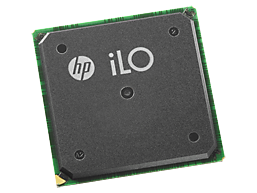

- HP ILO 4 FIRMWARE BIN UPDATE
- HP ILO 4 FIRMWARE BIN UPGRADE
- HP ILO 4 FIRMWARE BIN SOFTWARE
- HP ILO 4 FIRMWARE BIN CODE
- HP ILO 4 FIRMWARE BIN DOWNLOAD
We recently added the exploit code which effectively writes this backdoored firmware on the flash chip through the use of the CVE-2017-12542 web server vulnerability. Writing a faster implant in the firmware is left as an exercise to the reader :)Īll the tooling to insert the "backdoor" in an iLO4 2.50 firmware has been released after our SSTIC presention on the ilo4_toolbox repository. There are some drawbacks in using this firmware, as the HTTP communication adds a time overhead and restricts the size of data which can be sent in a single request, but it is sufficient for this proof-of-concept. iLO modified firmwareĪs a proof-of-concept, we will re-use the backdoored firmware we crafted as a demonstration of our SSTIC presentation.Īs a reminder, this firmware exposes a new endpoint in the web server task, providing read and write memory primitives through GET HTTP requests. The modified version has been put online on our repository. This is all we need for a working PCILeech device. RAWTCP_PROTO_PACKET, *PRAWTCP_PROTO_PACKET Add references to this new device in pcileech.Create a new pair of source and header files implementing open, read, write and close primitives.
HP ILO 4 FIRMWARE BIN SOFTWARE
PCILeech is a tool using either hardware or software memory acquisition devices to perform various actions on a target's physical memory, including inserting kernel modules and unlocking sessions.Īdding a new device is quite straightforward: It seems this feature would be interesting, so this blogpost aims at describing a proof-of-concept of a link between PCILeech and HPE iLO4 using a modified firmware. Indeed, Nicolas Iooss told us he successfully managed to use this tool for the exploitation of yet-another HPE iLO vulnerability. In this latest presentation, we told the audience that the memory R/W primitive we got through the vulnerability allows us to perform in-memory attacks just as PCILeech tool does.

$ILOrest = "C:\Program Files\Hewlett Packard Enterprise\RESTful Interface Tool\ilorest.exe" $7zpath = "C:\Program Files\7-Zip\7z.exe" Start-BitsTransfer -Source $url_zip -Destination $output_zip New-Item -Path $output_path -ItemType "Directory" -Force -Confirm:$false | out-null

$iispath = "\\" + $iisip + "\c$\inetpub\wwwroot\" + $binname Use any tips, tricks, or scripts I post at your own risk. Keep in mind your IIS server ($iisip) will need to have a mime type associated with bin files for this to work.
HP ILO 4 FIRMWARE BIN UPDATE
Be sure to update the items in red where required.

You’ll need to adjust it as required for your own environment.
HP ILO 4 FIRMWARE BIN UPGRADE
bin file, copy it an IIS server, and then proceed to upgrade each ILO one a time utilizing the ILO RestAPI.īelow is my PowerShell code.
HP ILO 4 FIRMWARE BIN DOWNLOAD
So I built a PowerShell script to download the ILO 4 update, extract the. I could have used ILO federation group firmware update, or the ILO Amplifier Pack to do this, but I’m a fan of scripting things so I just have to RDP a server onsite, open a prompt and paste a few lines of code and let it start doing it’s thing, then RDP the next site and do the same thing. Most of my managed sites have between 3 and 9 ILOs that need updated when HPE pushes out an ILO firmware update. Recently, I had to update a bunch of HPE ILO 4s at multiple locations.


 0 kommentar(er)
0 kommentar(er)
